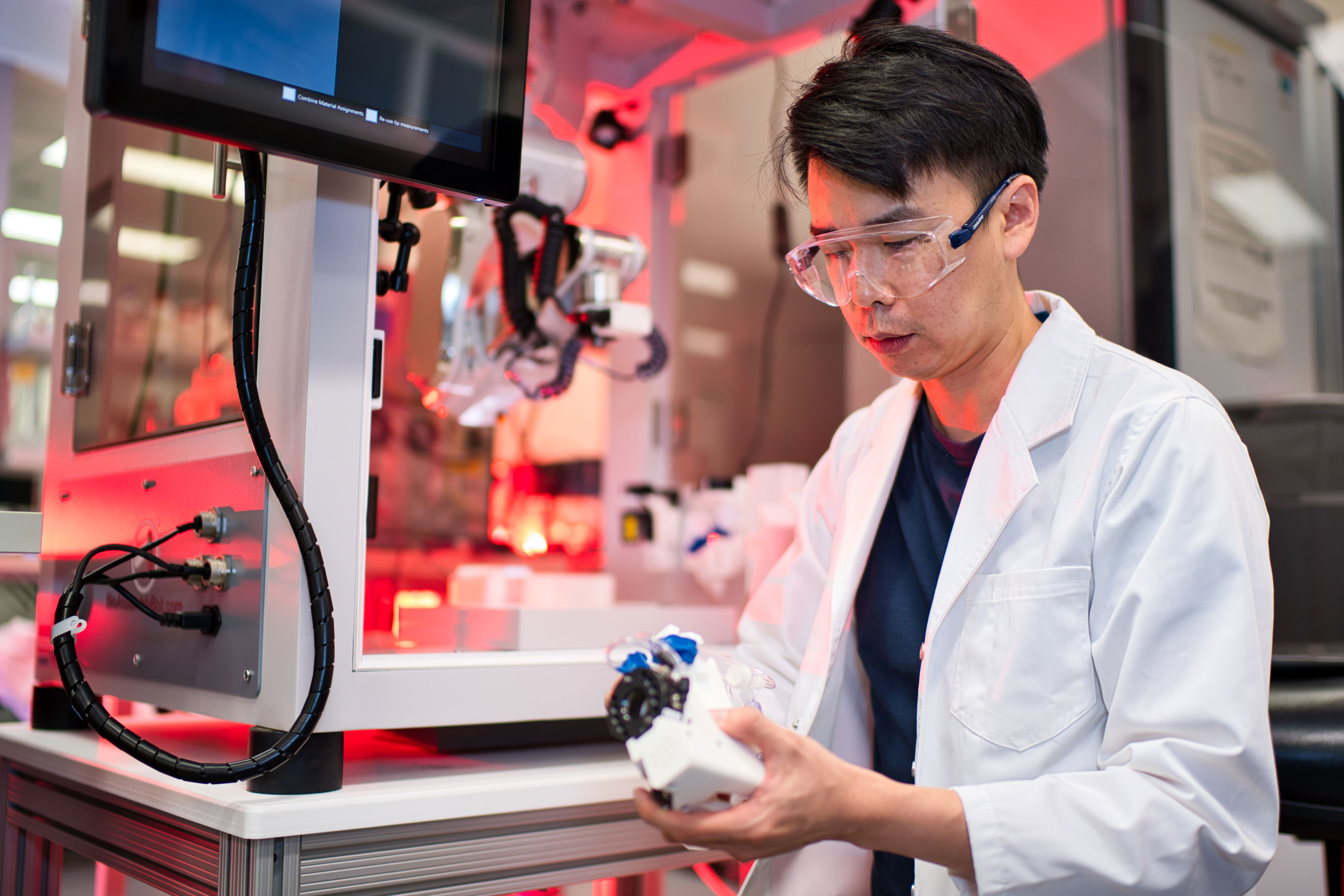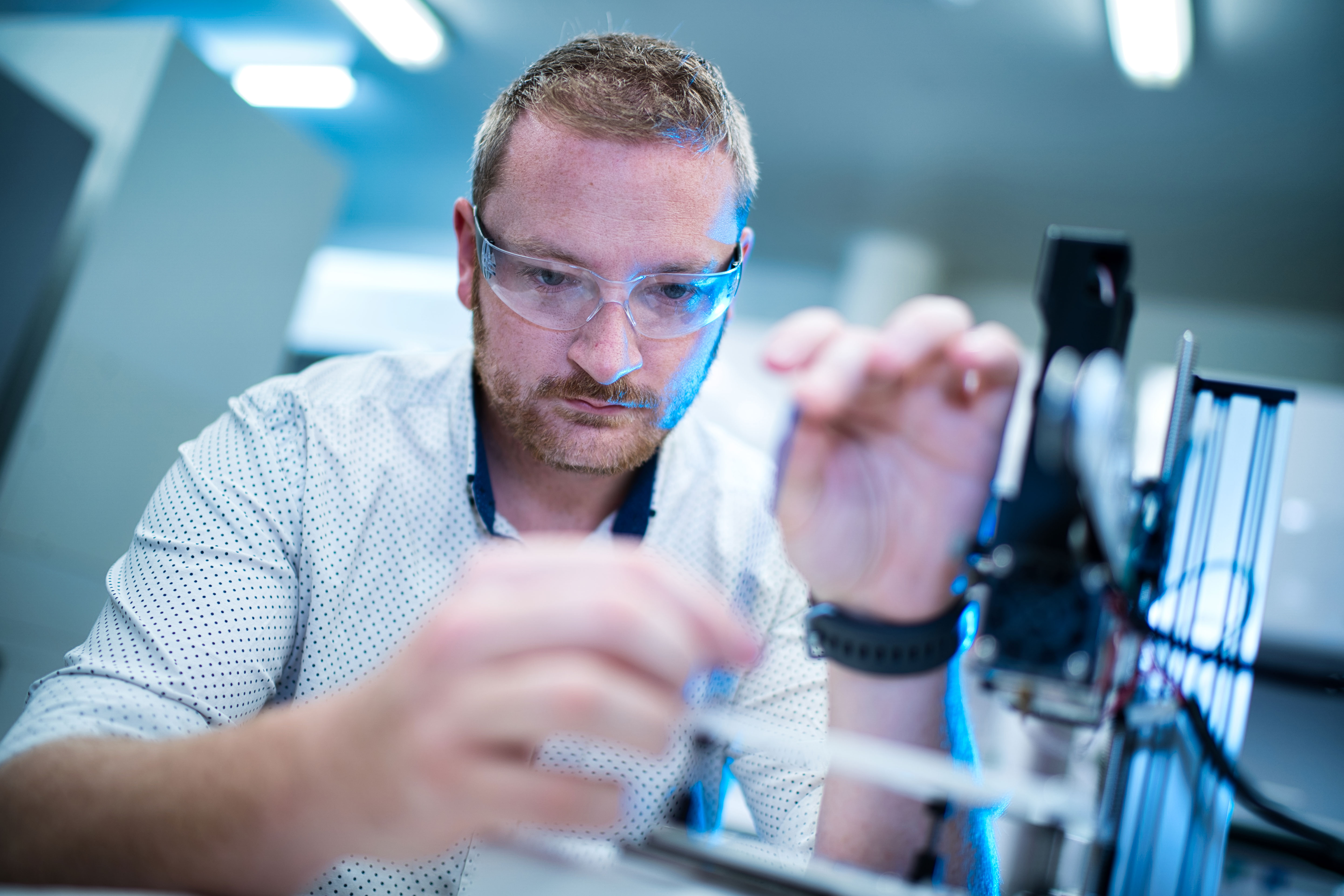IPRI competencies lie in the design and synthesis of advanced materials. IPRI is renowned for expertise in the group of multifunctional, stimuli-responsive materials – including organic conducting polymers and nanostructured carbons; used in applications for Energy and Health.
Our work
Through TRICEP and the ANFF Materials node, IPRI staff are engaged in development activities to facilitate the realisation of commercial opportunities in advanced materials and fabrication with a special interest in 3D Biofabrication.
As detailed below, the core technological skills used to sustain our world-leading position and to capitalise on imminent opportunities are in:
Electrochemistry - A platform to continue fundamental studies into electron transfer and ion dynamics is essential to underpin future developments. The focus on design and development of materials to control these key processes will sustain world leadership, including electrofluidics.
Biomaterials - The research thrust in this area needs to be two pronged. 1) Sourcing and management of high-quality materials. 2) Modification and blending of source materials to create bioinks and other biomaterial formulations.
Stem Cell Biology - Understanding the interactions of stem cells with biomaterials and how this influences proliferation and differentiation is critical to the field of tissue engineering
Characterisation - Biofabrication and tissue engineering protocols require the ability to interrogate systems in vitro and in vivo without destruction of the sample.
Fabrication – we must continue to develop new modes of fabrication that continue to enhance resolution of strategic placement and accommodate new materials.

